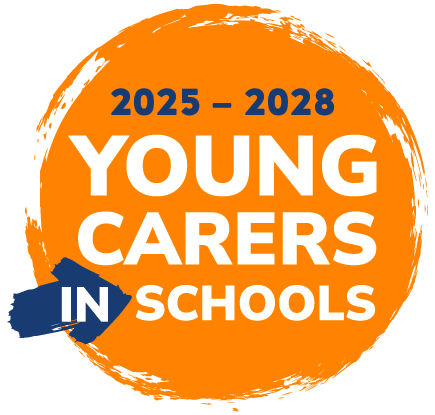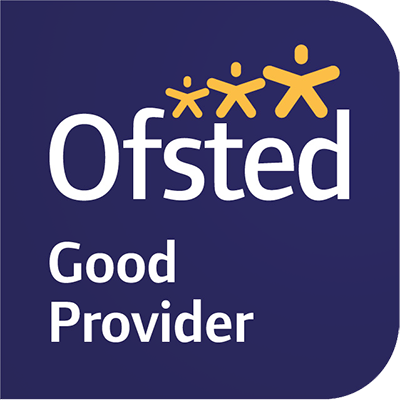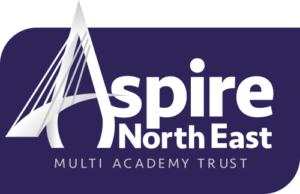History Curriculum Overview
Knowledge Organisers
- Source analysis and evaluation
- Chronological understanding
- Change and continuity
- Cause and consequence
- Analysis of significance
- Evaluation of interpretations
Key Stage 3 Curriculum
Our Key Stage 3 Curriculum:
Three-year KS3 with 3 hours per week in Y10 and 2 hours per week allocated to History. Year 9 is used to cover a “Through Time” and a depth study of USA- the depth study follows the National Curriculum link but also as a bridge to KS4.
Download the full policy at the link above for a full break down of learning for each Term.
Key Stage 4 Curriculum
Our Key Stage 4 Curriculum:
The KS4 Curriculum is taught over 2 years and both Y10 and Y11 have 3 hours per week. Lessons are taught in mixed ability groups and all classes follow the AQA GCSE History specification code RA. KS3 provides a foundation for learning. Links are made throughout and build upon the key concepts e.g. Conflict from Y8 and Terror from Y9. Key learning on areas such as religious change and the impact of war are essential for learning in KS4. The KS4 curriculum acts as a foundation for KS5- students develop their ability to evaluate complex historical interpretations, develop essay writing skills and also learn key content which supports content taught in local colleges and Sixth Forms.
Download the full policy at the link above for a full break down of learning for each Term.
Aim
Here at Sandhill View Academy, we aim to securely equip all of our students for life beyond school as successful, confident, responsible and respectful citizens. We believe that education provides the key to social mobility and our curriculum is designed to build strong foundations in the knowledge, understanding and skills which lead to academic and personal success. We want our students to enjoy the challenges that learning offers. Ultimately, we want students to ‘Know More, Do More and Go Further’
Our aims are underpinned by a culture of high aspirations. Through developing positive relationships, we work towards every individual having a strong belief in their own abilities so that they work hard, build resilience and achieve their very best.
Intent
The curriculum includes formal teaching through subject areas, assemblies and extracurricular activities. We regularly review content to ensure we continue to meet our curriculum aims. The History curriculum is planned to allow students to think critically about the world they live in. By studying a range of periods and people, students will have a greater understanding of a range of events and issues to become more empathetic. History is complex and constantly evolving with new evidence and interpretations. The History curriculum is ambitious and builds upon fundamental knowledge and concepts, as well as disciplinary knowledge. It is planned to enable all students to cumulatively develop disciplinary knowledge and skills in the following second order concepts:
The British values of democracy, the rule of law, individual liberty, and mutual respect of those with different faiths and beliefs are taught explicitly and reinforced in the way in which the school operates. We are also explicitly embedding transferable ‘Skills Builder’ skills such as problem solving, aiming high and teamwork to prepare our students for careers and life after school.
Sequence and Structure
Our curriculum is covered Key Stage 3 (years 7, 8 and 9) and Key Stage 4 (10 and 11). It is structured chronologically at KS3 in years 7-8, with year 9 giving an opportunity for a through time study and wider world unit. In each year there are core concepts which underpin the curriculum (Y7: Conquest and Control, Y8: Empire and Conflict, Y9: Terror and Reform). These concepts are embedded across all years, allowing pupils to consider how layers of historical knowledge interact and to secure and develop their understanding of past societies, recurring terms and phenomena. The second order concepts cumulatively build for progression. At KS4 the curriculum is section by unit, the sequence has been updated at KS4 from Y10 into Y11, with the Wider World Depth Study taught first as there are more accessible links to KS3.
Covid Recovery to ‘unlock learning’
The pandemic continues to impact students therefore, we continue to embed strategies to support missed learning from KS2. Students continue to have gaps in chronological understanding as some content has been missed. The invaders unit has been planned as a bridge from KS2 and we continue to use homework to cover topics covered as part of lockdown. There will be opportunities for modelling and practice of second order concepts and written skills to support progress. Residential and day trips are planned to support pupils who have missed opportunities to develop their love for history beyond the classroom.
Literacy
We know that students who read well achieve well. As such all subject areas are committed to providing regular opportunities to read extensively. In History we provide regular opportunities for students to read as part of homework activities and within the classroom environment from a range of genres and follow the whole school focus each term to improve reading skills. We also have aspirations for our students to use ambitious vocabulary and are using Frayer models and ‘push’ techniques to widen the tier 2 and tier 3 vocabulary students use orally and, in the work,, they produce so students can learn to write like a historian. Coherent and fluent writing skills are also imperative for student achievement, so we support student writing skills by offering opportunities for extended writing, with modelling, and sentence stems to support so they can learn to write like a historian. All curriculum areas use literacy end point document which details yearly end points for reading, writing and oracy to ensure consistent literacy skills embedded across the curriculum.
Historical Scholarship
At Sandhill View Academy, engaging with historical scholarship allows students to explore diverse perspectives, develop critical thinking, and deepen their understanding of the past beyond simplified narratives. Through reading historians’ arguments, pupils learn to weigh evidence, challenge assumptions, and appreciate that history is constructed and contested. This strengthens their ability to write analytical responses, engage in informed debate, and prepare for higher-level historical study.
Skills Builder
We are also explicitly embedding transferable ‘Skills Builder’ skills such as problem solving, aiming high and teamwork to prepare our students for higher education and employability skills for the future. This year in History we will focus on TEAMWORK including group decision making and recognising the value of others. PROBLEM SOLVING by exploring complex problems by analysing cause and effect, and understanding through research. Furthermore, we want our students to AIM HIGH by setting goals, prioritising tasks and involving others.
How does our Curriculum cater for students with SEND?
Sandhill View is an inclusive academy where every child is valued and respected. We are committed to the inclusion, progress and independence of all our students, including those with SEN. We work to support our students to make progress in their learning, their emotional and social development and their independence. We actively work to support the learning and needs of all members of our community.
A child or young person has SEN if they have a learning difficulty or disability which calls for special educational provision to be made that is additional to or different from that made generally for other children or young people of the same age. (CoP 2015, p16)
Teachers are responsible for the progress of ALL students in their class and high-quality teaching is carefully planned; this is the first step in supporting students who may have SEND. All students are challenged to do their very best and all students at the Academy are expected to make at least good progress.
Specific approaches which are used within the curriculum areas include:
- Seating to allow inclusion
- Differentiation activities to stretch and support in all lessons
- Resources are accessible yet challenging
- Displays and visual learning tools are used where necessary
- Where appropriate support from additional adults is planned to scaffold students learning
- Group work and discussion
- Clear teacher/student communication
- Feedback that allows students to make progress, whether written or verbal
- Independent study/homework.
- Intervention when required
How does our curriculum cater for disadvantaged students and those from minority groups?
As a school serving an area with high levels of deprivation, we work tirelessly to raise the attainment for all students and to close any gaps that exist due to social contexts. The deliberate allocation of funding and resources has ensured that attainment gaps are closing in our drive to ensure that all pupils are equally successful when they leave the Academy. More specifically within the teaching of History, we;
- Work to identify barriers, interests and what might help each
pupil make the next steps in learning using lead practitioner research and actions to support. - Provide targeted support for under-performing pupils during
lesson time, such as targeted questioning, live marking and seating, in addition to revision lessons and intervention outside school hours. - Use strategies best suited to addressing individual needs
- ensure there are opportunities for students to make use of resources and gain homework support outside of lesson time through the use of Teams
- Provide students with revision materials to reduce financial burden on families
How do we make sure that our curriculum is implemented effectively?
- The History curriculum leader is responsible for designing the History curriculum and monitoring implementation.
- The subject leader’s monitoring is validated by senior leaders.
- Staff have regular access to professional development/training to ensure that curriculum requirements are met and subject knowledge developed
- Effective assessment informs staff about areas in which interventions are required. These interventions are delivered during curriculum time to enhance pupils’ capacity to access the full curriculum.
- Curriculum resources are selected carefully and reviewed regularly.
- Assessments are designed thoughtfully to assess student progress, long term knowledge retrieval and also to shape future learning.
- Assessments are checked for reliability within departments and across the Trust
We have staff who mark for exam boards and provide vital CPD to the rest of the department to ensure reliability of data. We also work closely with examination team leaders across trust to valid.
Gap analysis spreadsheets are used to identify areas of development for students at KS4 to identify areas of weakness
How do we make sure our curriculum is having the desired impact?
- Examination results analysis and evaluation
- Termly assessments based upon prior learning for retrieval-analysis and evaluation meetings
- Lesson observations
- Learning walks for KS3 and KS4 based upon departmental priorities
- Work sample for each year group cross referenced against milestone assessment end points
- Regular feedback from teaching staff during department meetings
- Regular feedback from Middle Leaders during curriculum meetings
- Pupil Surveys
- Parental feedback





